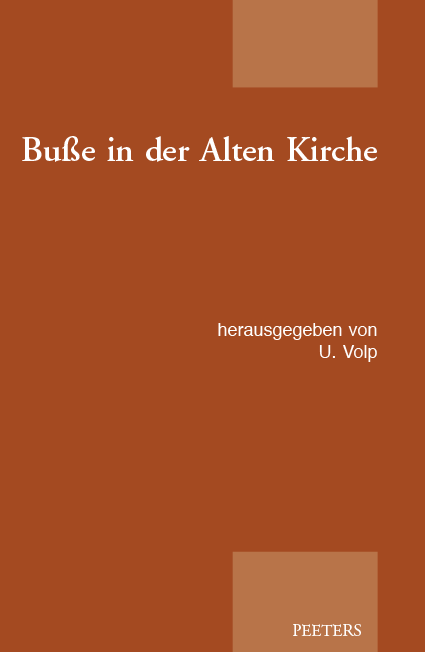

 0
EN
0
EN

„Buße“ war in der Alten Kirche ein maßgebliches Element der Glaubenspraxis und für die Spätantike und das Frühmittelalter waren die Bußbücher zentrale Schriften. Gleichzeitig war die Buße aber auch Gegenstand zahlloser kontrovers diskutierter Fragen: Sollte nach der Reinigung durch die Taufe eine (zweite) Buße erlaubt werden und wenn ja, wie oft? Wie genau sollte für welche Sünden gebüßt werden? Sollte die innere Gesinnung der äußeren Bußhaltung entsprechen und umgekehrt? Was genau kann man sich darunter vorstellen? Geht es nur um einen Gesinnungswandel, oder soll man auch im Lebenswandel „umkehren“? Welche philosophischen und anthropologischen Vorstellungen werden mit der Buße verknüpft? Die Buße wurde in den letzten Jahren von unterschiedlichen historisch arbeitenden Disziplinen als Quelle entdeckt, zum Beispiel für die Sozialgeschichte und für die Ethikforschung. Vor diesem Hintergrund ist es höchste Zeit für eine Bestandsaufnahme, der sich die Beiträge dieses Bandes widmet, die aus der Tagung der Patristischen Arbeitsgemeinschaft 2022 hervorgegangen sind.
“Penance” was a central element of faith and its practice in the ancient church; penitential books are some of the most crucial texts in the early Middle Ages. However, this also constitutes the subject of countless controversial questions: Should a (second) penance be permitted after purification through baptism, and if so, how often? How exactly should atonement be made? Which sins could be atoned? Should the inner attitude correspond to the outer attitude of repentance and vice versa? Is it only a matter of a change of mind, or should one also “repent” in one’s way of life? What philosophical and anthropological ideas are associated with repentance? In recent years, the importance of late antique and early medieval penances has been discovered by a number of diverse disciplines, e.g. social history and ethics. Against this background, it is high time for a stocktaking to which the contributions of this volume are dedicated, which emerged from the conference of the Patristische Arbeitsgemeinschaft in 2022.



